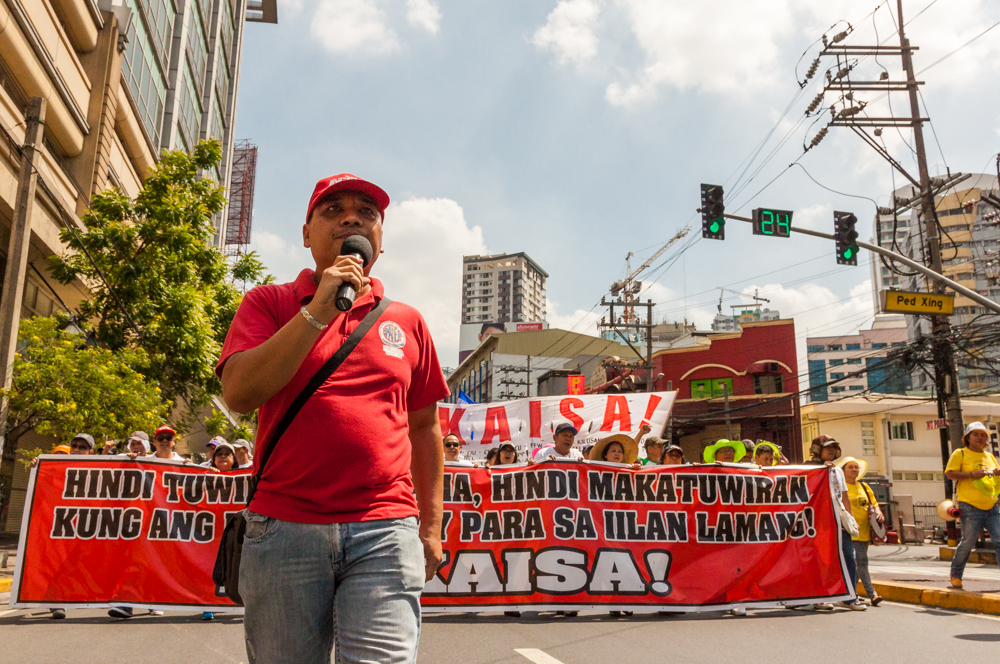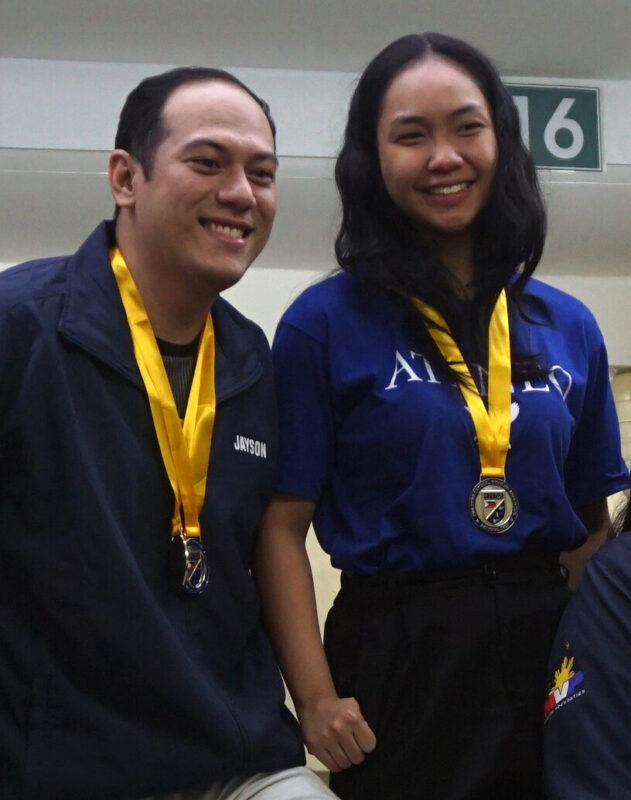Around 35,000 laborers and workers marched to Mendiola Street on Thursday, May 1 as part of the annual Labor Day demonstrations.
The workers donned red shirts and demanded for higher wages and better benefits. Labor union groups, such as Philippine Airlines Employees Association (Palea) and Trade Union Congress of the Philippines, also called for the passage of the Security of Tenure bill, which aims to protect workers from contractualization.
Despite not being officially part of the labor force, university students also took part in these demonstrations. Representatives from the political party Christian Union and Socialist and Democratic Advancement (Crusada) marched with Palea for the second time, the first during last year’s protests.
Representatives from the University of the Philippines (UP) Diliman’s University Student Council (USC) also joined the demonstrations.
“These are youth issues”
Crusada Premier Abbo Hernandez said that what the youth aims to do is strengthen the voice of these workers. “Even if they have labor unions, even if they have protests, that’s the least they can do. They’re still tied to their companies,” he explained.
“As students, we’re more free to give them a voice,” Hernandez said. “Discourse happens when the space is provided for them.”
Arjay Mercado, USC chairperson, said that these types of things are youth issues. “In the future, if these unjust policies continue, we’ll also be affected,” he said in mix of English and Filipino. “So it’s vital that we get involved as early as now, as students.”
Hernandez agreed, saying, “In the near future, these Ateneans are going to be the ones handling these workers. The reason why we’re [attending these demonstrations] is we want [Ateneans] to recognize that these workers are people too.” He added that they were also fighting for the students, as they will eventually be part of the labor force as well.
Not limited to protests
For Jeff Crisostomo, legislative and media officer at the House of Representatives, activism is not limited to attending demonstrations. “Activists can still create change even if they’re not at rallies. They can help in lobbying for the Security of Tenure bill, make signature campaigns in their schools; there are so many activities that they can think about,” he said.
Mercado agreed that there are many forms of activism. He knows of UP students who were not allowed by their parents to attend these rallies, who made a video campaign by interviewing workers at their school. They then shared these videos online. “Internet advocacy is still a very effective advocacy, it still gets the word out,” said Hernandez.
Hernandez also added that Ateneans can do their part by participating in donation drives that happen in school. “[Crusada] accepts that not all Ateneans are willing to go out and participate in rallies, which is why we try to bring in convenient ways for them to participate and help out.”
Disproved notions
When asked if he was glad that students were taking the initiative to join these protests, Palea President Gerry Rivera said that while he was happy that students were getting involved, he was dismayed that there were only a few of them present. “Mas matutuwa ako kung marami kayo (I’d be happier if there were more of you),” he said.
Rivera added, however, that he was happy seeing Atenean faces at the demonstrations. “You have [disproved] the notion that people from these elite schools do not care about people from the lower classes,” he said in a mix of English and Filipino.




